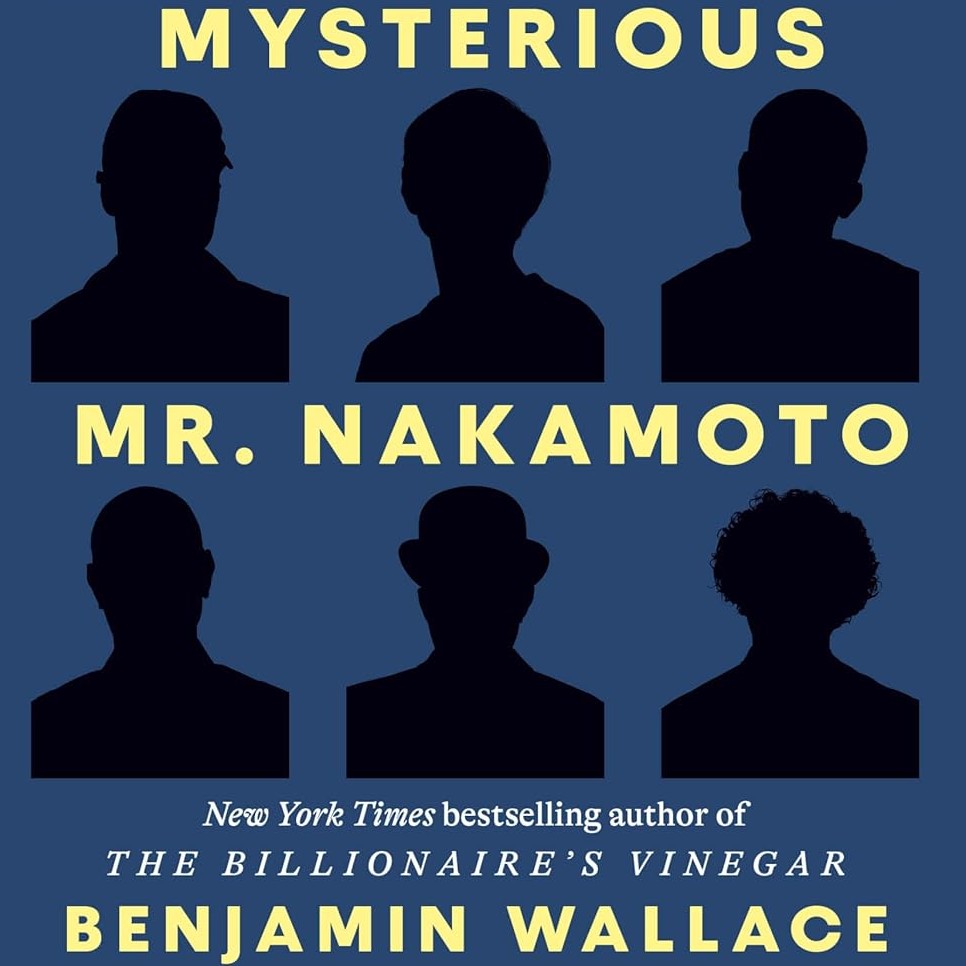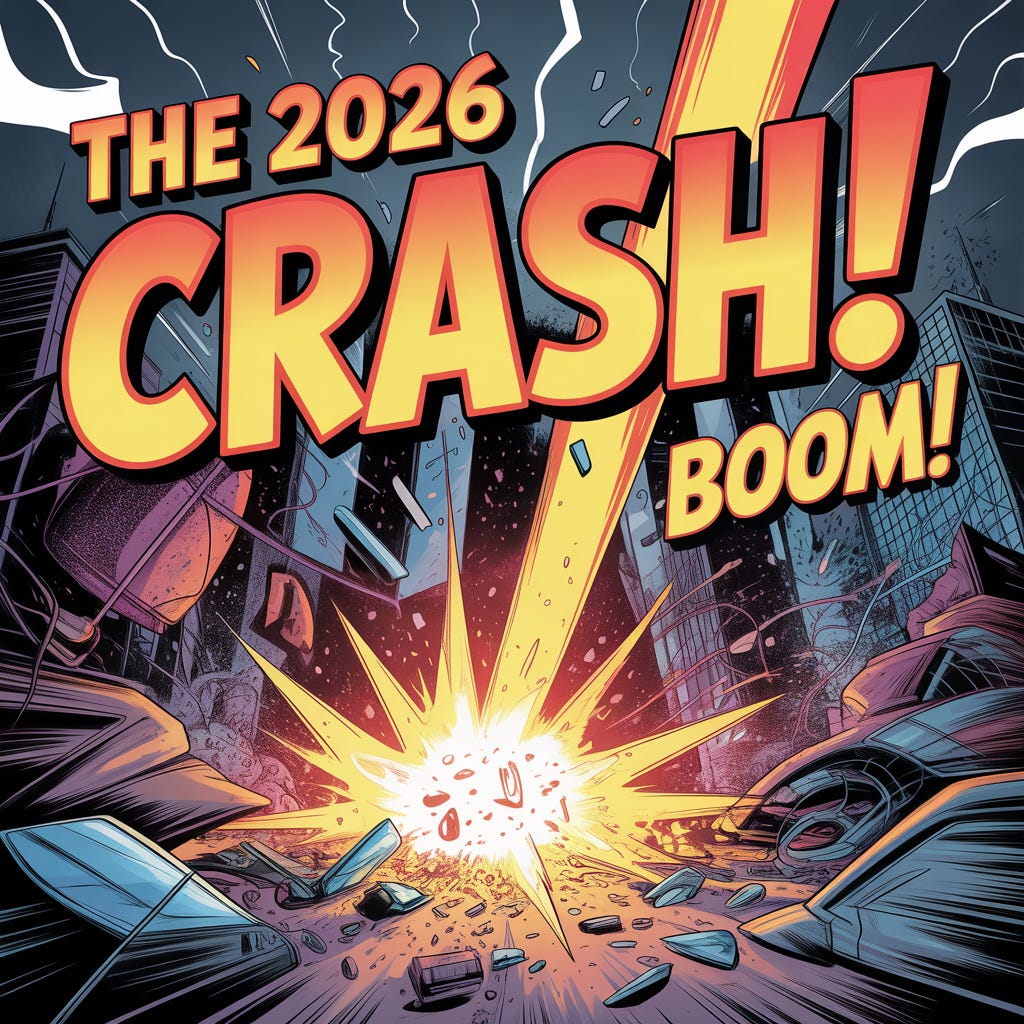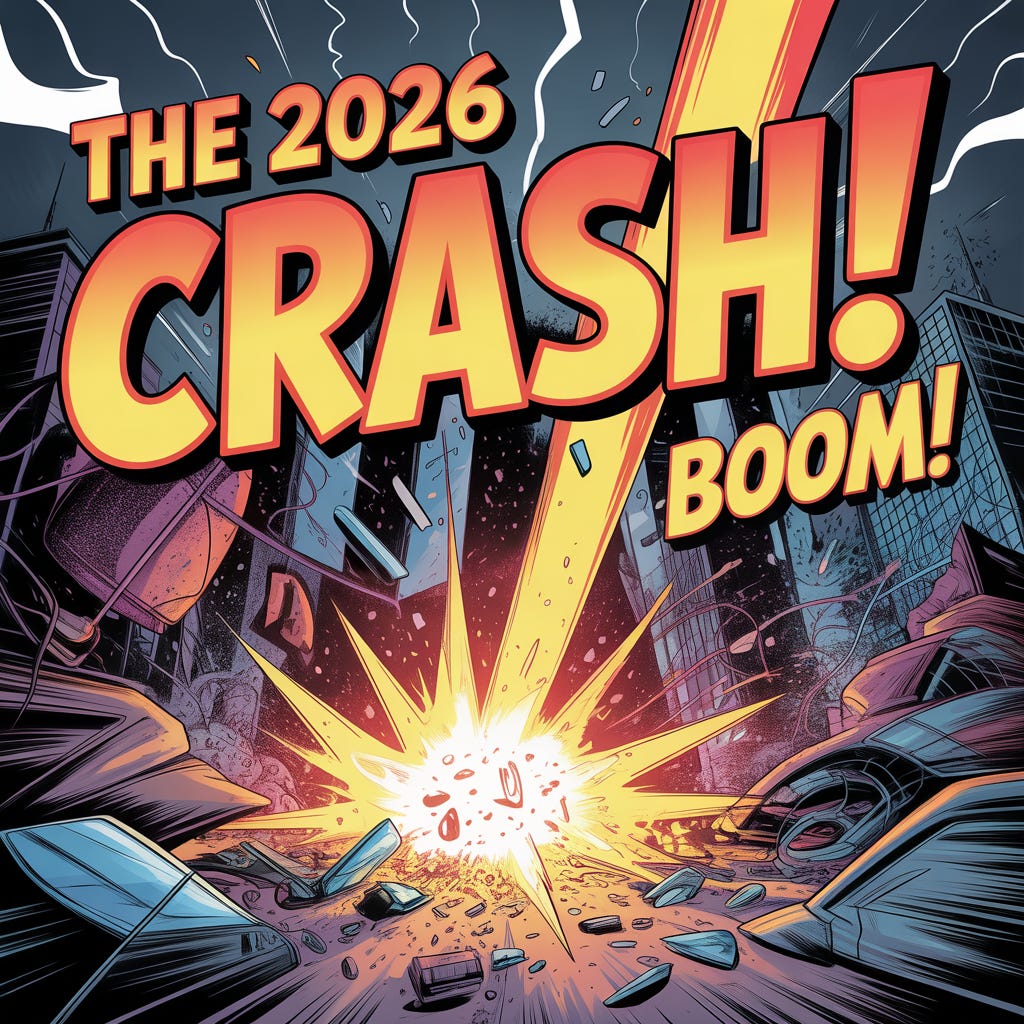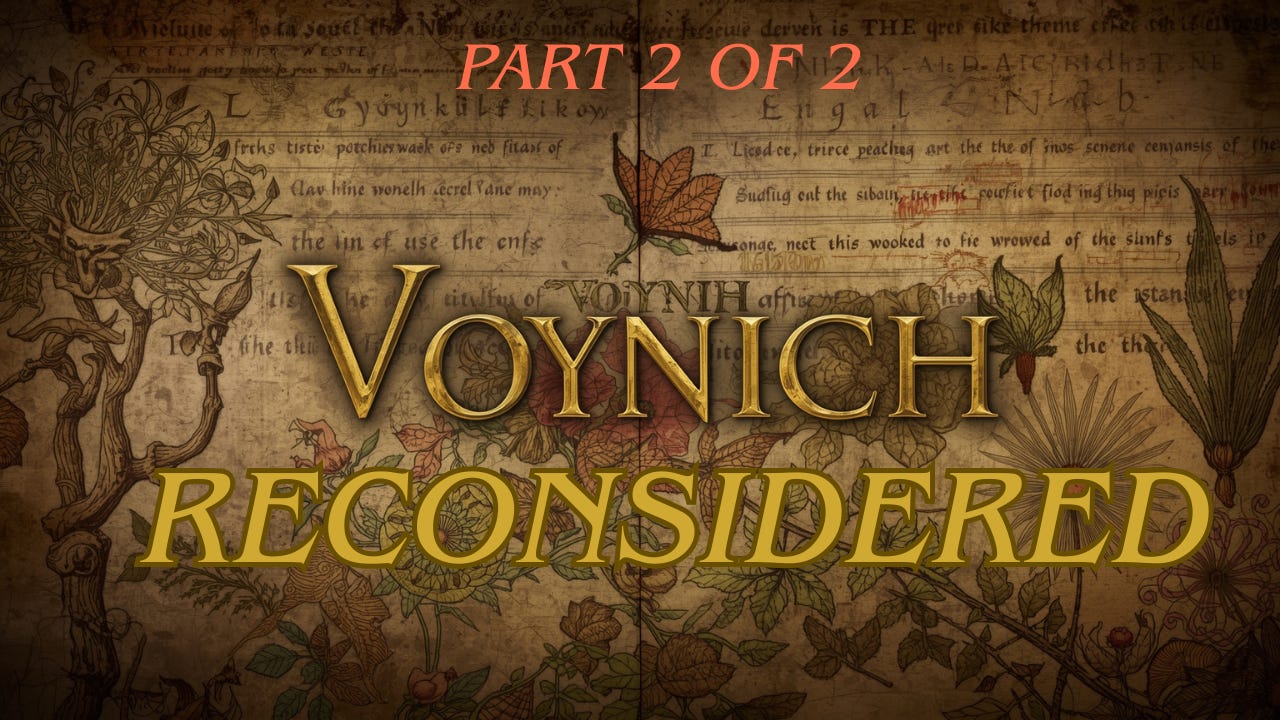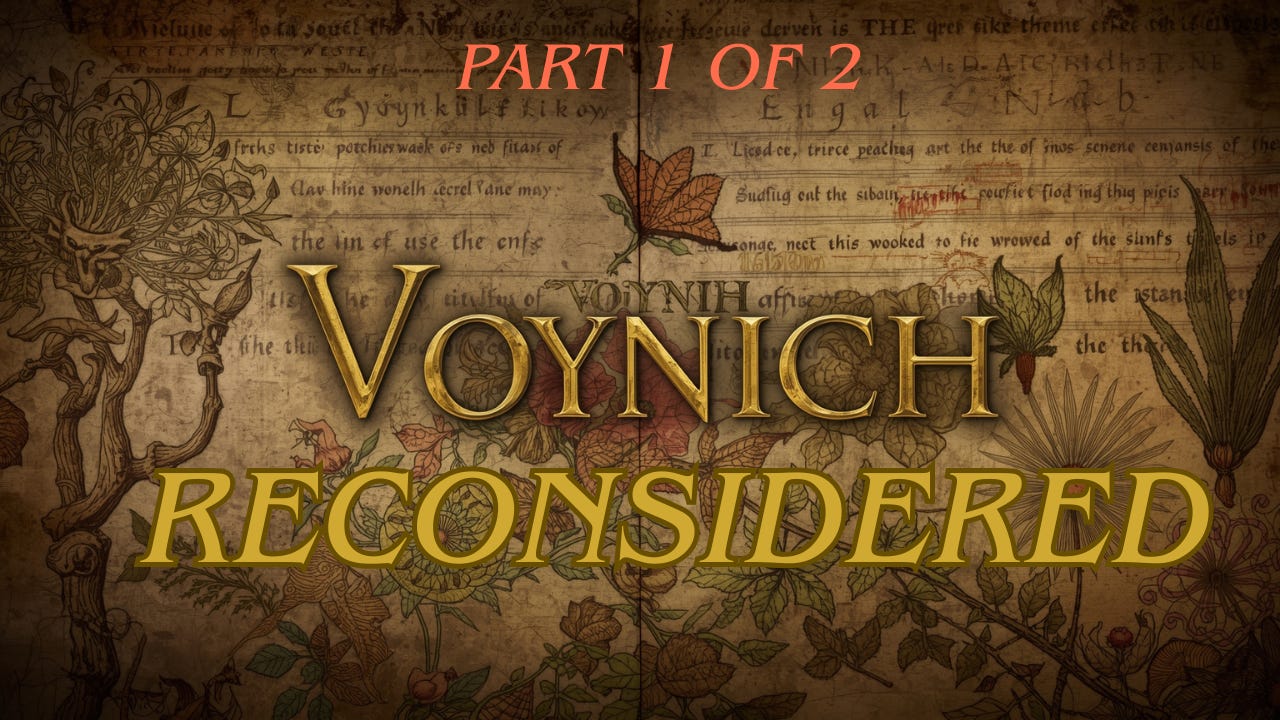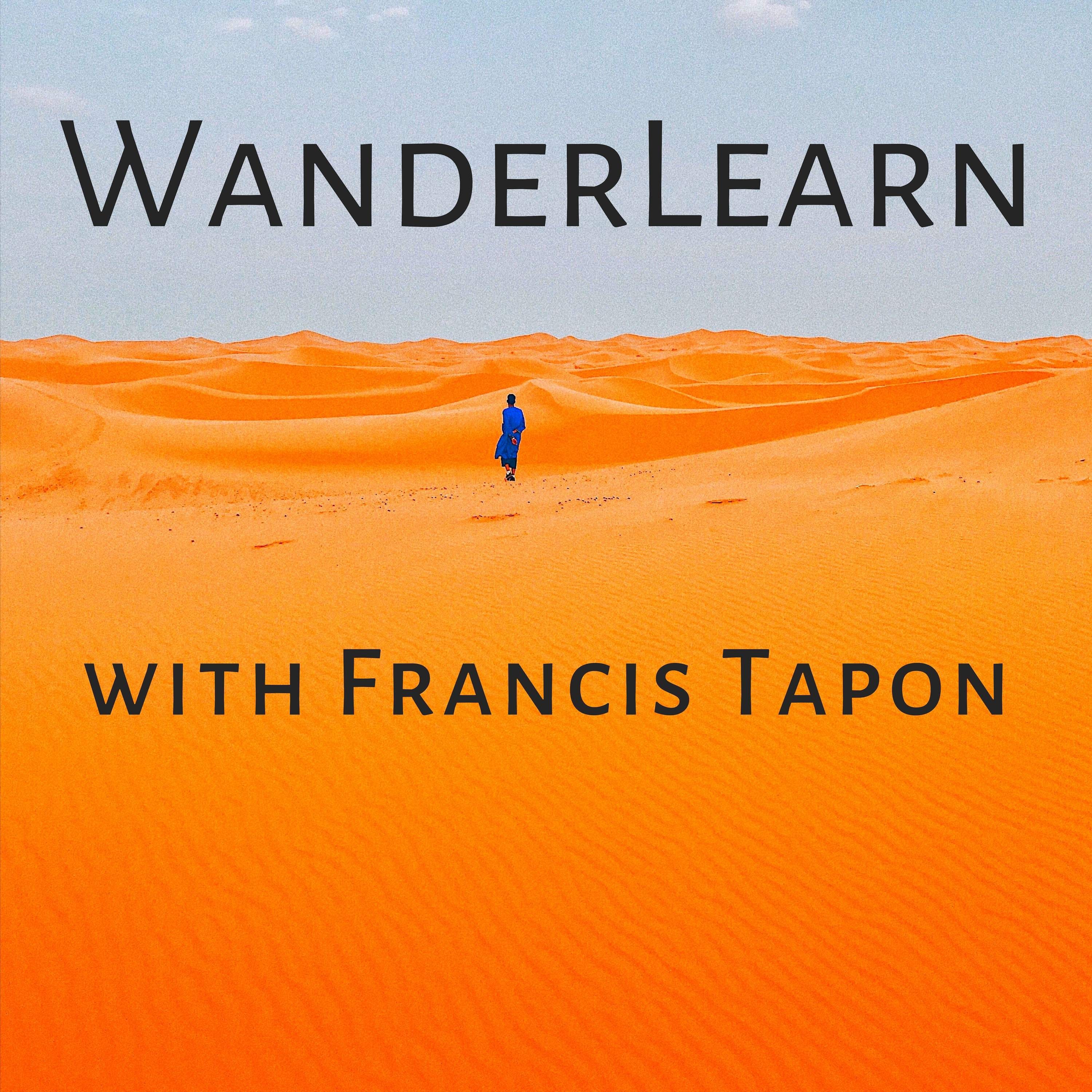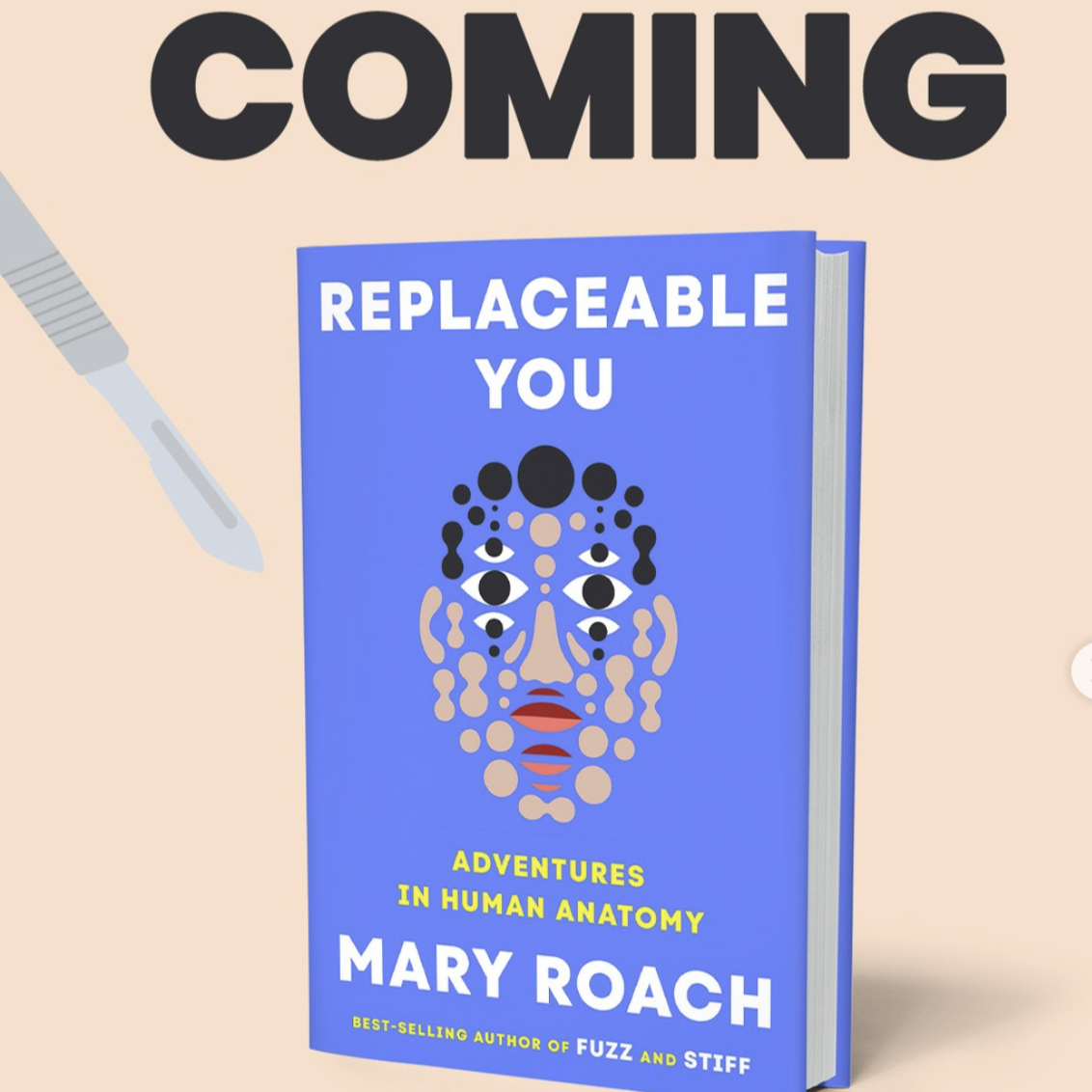Benjamin Wallace On Who Is Satoshi Nakamoto, Bitcoin's Creator
Description
Benjamin Wallace's new book is The Mysterious Mr. Nakamoto: A Fifteen-Year Quest to Unmask the Secret Genius Behind Crypto.
It's the greatest whodunit. Whoever created Bitcoin became the world's richest person, yet we don't know who he is. In fact, we don't even know if it's one person.
There have been other cases where identities have been hidden for a while:
Mysterious Whistleblowers (Deep Throat)
Mysterious Authors (Ferrante, Klein, Publius)
Mysterious Artists (Banksy)
Mysterious Spies / Hackers (Cambridge Five, QAnon figureheads, Cicada 3301)
However, nothing tops the enigma of Satoshi Nakamoto. Watch my interview with Benjamin Wallace on the WanderLearn Show:
Watch the Video Interview
Questions for Benjamin Wallace
- In 60 seconds, tell us why we should be curious about who Satoshi Nakamoto was.
- What's the percentage chance that Satoshi Nakamoto is more than one person?
- What's the percentage chance that Satoshi Nakamoto is dead?
- Assuming he's alive, what's the percentage chance that Satoshi Nakamoto will voluntarily reveal himself in his old age or via a dead man's switch video?
- Who are your top 4 candidates for Satoshi Nakamoto?
- If those 4 candidates are in a pie chart, how big is the 5th piece of the pie: the Someone Else slice?
- Although Nakamoto's OPSEC was impeccable, is it realistic to believe that he faked his Britishisms, his double-spacing after periods, and potentially running his prose & code through a stylometry mixer because he was certain that Bitcoin would become a multi-trillion-dollar asset?
- What new insights have you had since you wrote the book?
- What's the percentage chance that we will definitively solve this mystery like we solved the Deep Throat mystery? Or will the ending be more like Forrest Fenn (e.g., a partial conclusion because we know the treasure was found and by whom, but we don't know where)?
- What surprised you in your investigation?
- It seems you want Nakamoto to be Hal Finney, but it's hard to believe he didn't tap into the fortune when his life was on the line. And why not admit to being Nakamoto when he was on his deathbed? Perhaps to protect his family from assaults? Perhaps because he collaborated with someone else and doesn't want to unmask him. But then he could admit that he was part of the Satoshi team and leave it at that.
Who is Satoshi Nakamoto?
In his book, Wallace writes that any plausible Nakamoto candidate should have the following characteristics:
- Software tools
- Coding quirks
- Age
- Geography
- Schedule
- Use of English
- Nationality
- Prose style
- Politics
- Life circumstances (How had Nakamoto found the time to launch Bitcoin? Why had he left the project when he did?"
- Resume ("I'm not a lawyer.")
- Emotional range (humble, confident, testy, appreciative)
- Motivation to create Bitcoin
- Rationale, and the foresight and skill, to create a bulletproof pseudonym (Who would bother wiping a crime scene clean before it was a crime scene? Who was already that good at privacy in 2008?)
- Monkish capacity to renounce a fortune
Although this list severely restricts who Satoshi Nakamoto could be, it still leaves countless possibilities.
Wallace, who has been trying to crack this mystery for 15 years, has yet to meet a candidate who checks all the boxes.
Wallace refrains from declaring that he has solved the mystery, even though countless "detectives" have already done so.
He interviews people who tell him, with 100% certainty, that Satoshi Nakamoto is:
- Nick Szabo
- James A. Donald
- Adam Back
- Hal Finney
- Peter Todd (according to HBO)
- Elon Musk
- Numerous other options
It's tempting to select what you think is the most viable candidate, throw in a heavy dose of confirmation bias, and declare, "Mystery solved, Sherlock!"
Plenty have done so.
It requires great restraint to resist the temptation of calling it a day, and instead, persevere pugnaciously like Wallace has in what is the greatest whodunit of the 21st century.
Many suspects seem highly implausible. Elon Musk, for example, is a bombastic self-promoter who would love to proclaim he was the genius behind Bitcoin. It's unimaginable why he would keep his mouth shut.
Hal Finney was a sincere, honest, and good guy. As he said many times when he was dying of ALS, he had no reason NOT to reveal that he was Satoshi Nakamoto. Therefore, it's not him, even though it would provide a neat explanation as to why the old Satoshi Nakamoto bitcoins haven't moved.
Adam Back is plausible, although ex-cypherpunk Jon Callas says, "The primary argument against Adam Back is he couldn't keep his mouth shut."
Still, an engrossing 3-part documentary argues that Nakamoto is Adam Back. Here's the final episode:
https://www.youtube.com/watch?v=XfcvX0P1b5g
Is Nick Szabo Satoshi Nakamoto?
For several years, I believed Nick Szabo was Satoshi Nakamoto. It was an unoriginal deduction since Szabo is a popular choice among amateur Nakamoto detectives. Indeed, Szabo was one of Wallace's prime candidates for a long time.
However, in his book, Wallace explains why Szabo has too many strikes against him:
- Szabo is a scatterbrain when it comes to projects. He doesn't focus on one thing for years. He juggles 150 balls. Nakamoto was laser-focused for 18 months.
- He told Jeremy Clark that Szabo "seemed to think that his bit gold was better" than Bitcoin.
- Clark also said Szabo is an "incoherent" presenter, whereas Nakamoto was "lucid."
- Although Szabo is intensely private, he's not a complete recluse. He likes sharing ideas and getting public recognition.
- Minor point: Satoshi Nakamoto wrote, "I'm not a lawyer," but Szabo is one.
Although these points suggest Szabo is unlikely to be Satoshi, Szabo remains a strong Nakamoto candidate, given the absence of a perfect candidate.
Besides, Clark's points are easily refuted. Just because Szabo implied Bitgold was better than Bitcoin means little. Szabo could say that to shake off people who think he's Satoshi. Or he could genuinely believe that aspects of Bitgold were superior to Bitcoin. Clark said Szabo "seemed to think..." He didn't say, "Szabo emphatically said..."
Also, I listened to Szabo speak for 2.5 hours on the Tim Ferriss Show, and he sounded plenty lucid to me.
Szabo is a decent speaker.
Naturally, Szabo always denies he's Satoshi.
As Wallace says, denying you're not the guy proves nothing. Mark Felt was an obvious suspect for being the Deep Throat in the Watergate scandal. He denied for decades. And guess what? He was Deep Throat! Sometimes the most obvious suspect is the criminal (think O.J. Simpson).
Is James A. Donald Satoshi Nakamoto?
After reading The Mysterious Mr. Nakamoto, I added another suspect to my short list: James A. Donald.
Satoshi Nakamoto used the rare term "hosed" a few times. Donald did so twice.
Furthermore, Donald was the first person to respond to Satoshi Nakamoto's original Bitcoin post, albeit in a critical way. He has various other attributes that Satoshi Nakamoto shares (read the book to see them all).
However, Donald is rough around the edges, whereas Satoshi Nakamoto was silky smooth, polite, and unoffensive. Again, James A. Donald is no slam dunk candidate. Nobody is.
Hence, the mystery endures.
The only negative aspect about this book is that it may provide too much detail for the casual reader with limited interest in this mystery. If you're just looking for the answer, I'll tell you now: we do not know who Satoshi Nakamoto is.
For Satoshi sleuths, there is no better resource than The Mysterious Mr. Nakamoto: A Fifteen-Year Quest to Unmask the Secret Genius Behind Crypto. It delves deeper and wider than any video, article, or book about the identity of Satoshi Nakamoto. Believe me, I've gone down that rabbit hole.
Why should we care who Satoshi Nakamoto is?
Many argue we don't need to know who Satoshi Nakamoto is because:
- Knowing his identity could taint the "immaculate conception" of Bitcoin because we might learn that Satoshi Nakamoto was an a*****e.
- We should respect Satoshi Nakamoto's right to privacy. He obviously wanted to be pseudonymous, so let him be.
- If Satoshi Nakamoto is alive, it would imbue him with too much power, especially over the Bitcoin protocol.
I strongly disagree with this lack of curiosity. Why?
There's a chance that in the 25th century, historians

